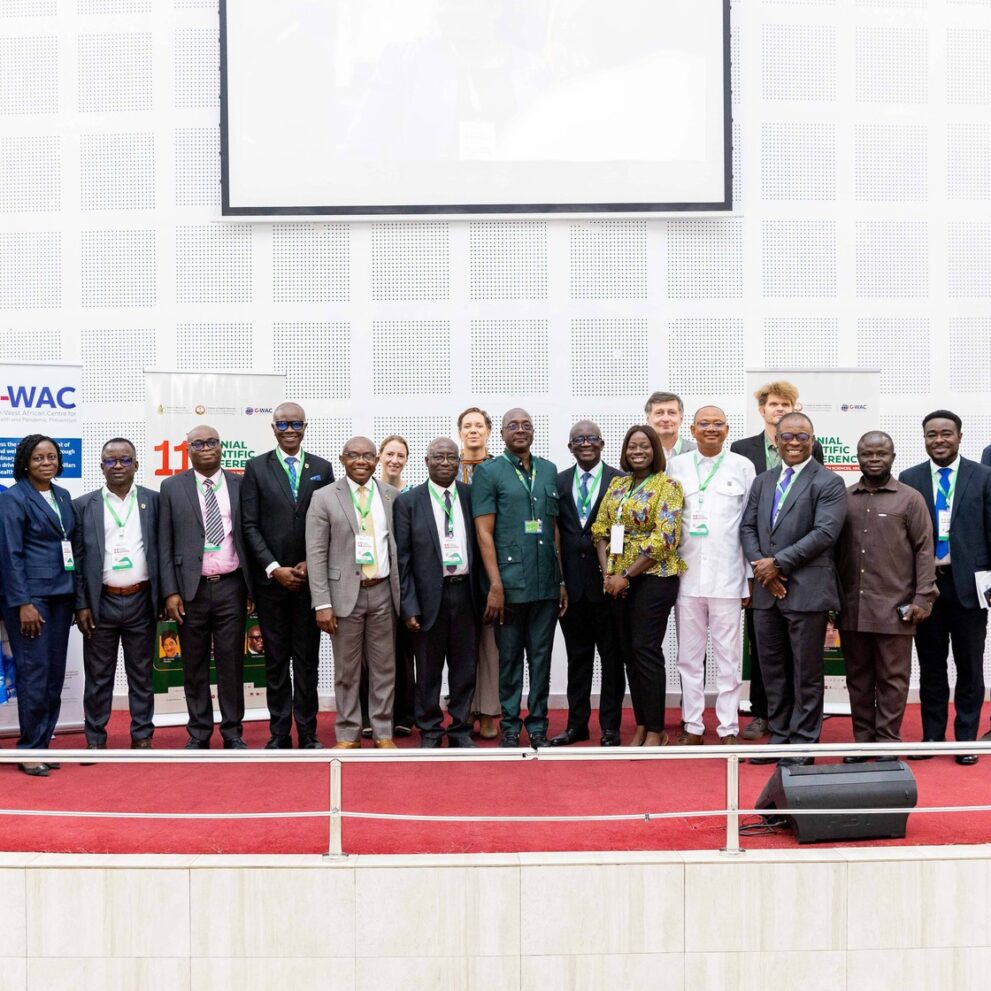The College of Health Sciences at Kwame Nkrumah University of Science and Technology (KNUST) recently convened its 11th Biennial Scientific Conference, a landmark event centered on the vital theme, “Bridging the Gap: Multidisciplinary Approaches to Strengthening Ghana’s Health System.” The multi-day event brought together academics, policymakers, and healthcare professionals to forge a unified path forward. The sentiment, as expressed by the Provost of the College of Science, was that the theme was “not just a theme but a commitment by Ghana for the Health sector,” emphasizing that the crucial element that “bridges policies and solutions is action.”
The conference served as a crucial forum, uniting academics, healthcare professionals, and international partners to chart a course toward a more robust, equitable, and resilient health infrastructure for the nation. The discussions highlighted that the path forward depends on a multifaceted strategy emphasizing international collaboration, groundbreaking research, a deeply ingrained culture of quality assurance, and a strategic push for local self-sufficiency.
Throughout the sessions, the indispensable role of research as a catalyst for progress was a constant theme. In his welcome address, Professor Akwasi Antwi-Kusi, Dean of the School of Medical Sciences at KNUST, articulated the vision of the conference: to move beyond established knowledge and generate fresh, innovative insights. He stressed that research conducted within the university’s halls must translate into tangible policy and improved clinical practices, directly impacting the well-being of Ghanaians. The conference agenda, which included breakout sessions on topics ranging from health systems financing to medicinal products and technologies, was designed to foster this very process of translating research into action.
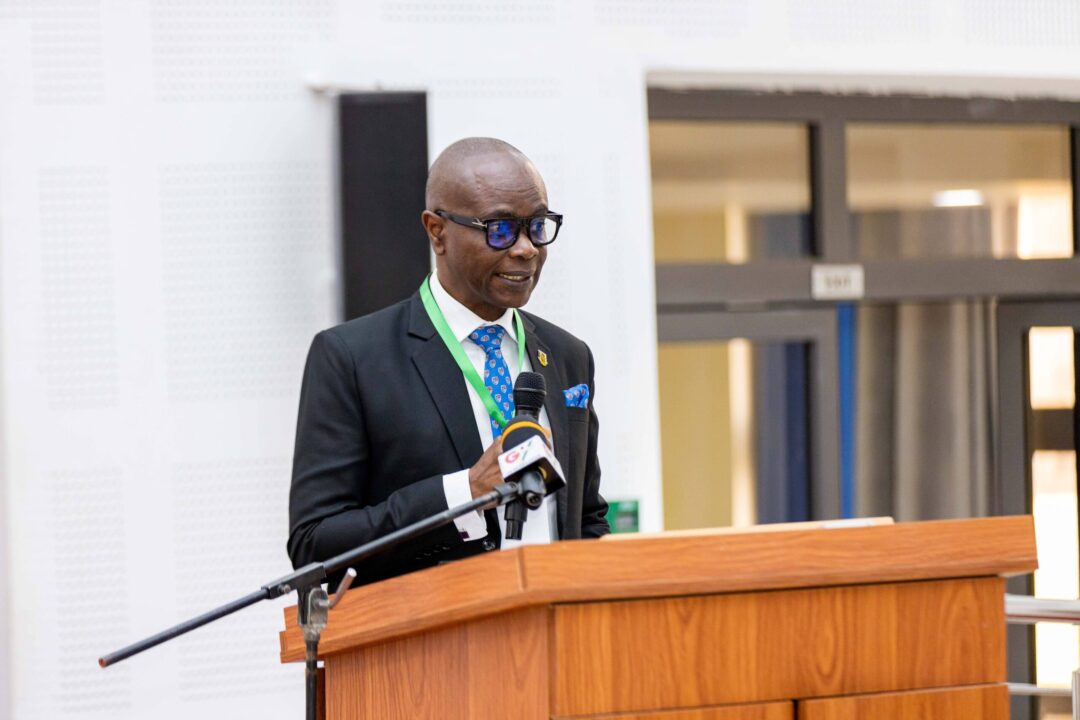
Throughout the conference, a recurring and powerful message was the necessity of collaboration. The Provost highlighted that “collaboration and teamwork is required in day-to-day healthcare delivery,” a point echoed by the Chief Director of the Ministry of Health, Mr Desmond Boateng, who represented the Minister of health, Honorable Kwabena Mintah. In his keynote address, the Chief Director articulated a vision of partnership, stating that the Minister seeks to “build a health system as a partner to the Ghanaian Health Industry.” He memorably concluded with the proverb, “If you wanna go fast, go alone, go together if you wanna go far,” framing the strengthening of Ghana’s health system as a collective journey. This idea was further supported by the Pro Vice-Chancellor, representing the Vice Chancellor of KNUST, who noted, “The complex nature of health challenges is one that can be tackled collaboratively and not singularly.”
The collaboration with the German West African Center for Global Health and Pandemic Prevention (GWAC) was particularly highlighted as Dr. John Humphrey Amuasi, the center’s director, delivered opening remarks that highlighted the fruitful relationship, which has been instrumental in building local capacity and advancing critical health research. This sentiment was reinforced by the German Academic Exchange Service (DAAD), which announced a second five-year funding phase for the project, a clear vote of confidence in the initiative’s impact. The partnership exemplifies how global cooperation can be leveraged to address local health challenges, creating a powerful synergy that benefits all involved.
The conference tackled the pressing issue of brain drain within the health sector. Dr. Asabir delivered a pragmatic speech on the subject, explaining that Ghana faces a paradox where it can train healthcare workers but “sadly cannot recruit its very health workers.” This leads to an exodus of talent, a significant concern where the World Health Organization projects a global shortfall of millions of health workers by 2030. Dr. Asabir warned that “an unemployed health professional is a threat to the country” and proposed multi-sectorial solutions. One innovative idea was for Ghana to “export specialized health workers to countries in need of them for recruitment to earn and use the revenue to finance the workers in the country,” turning a national challenge into a potential economic opportunity.
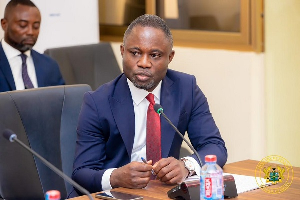
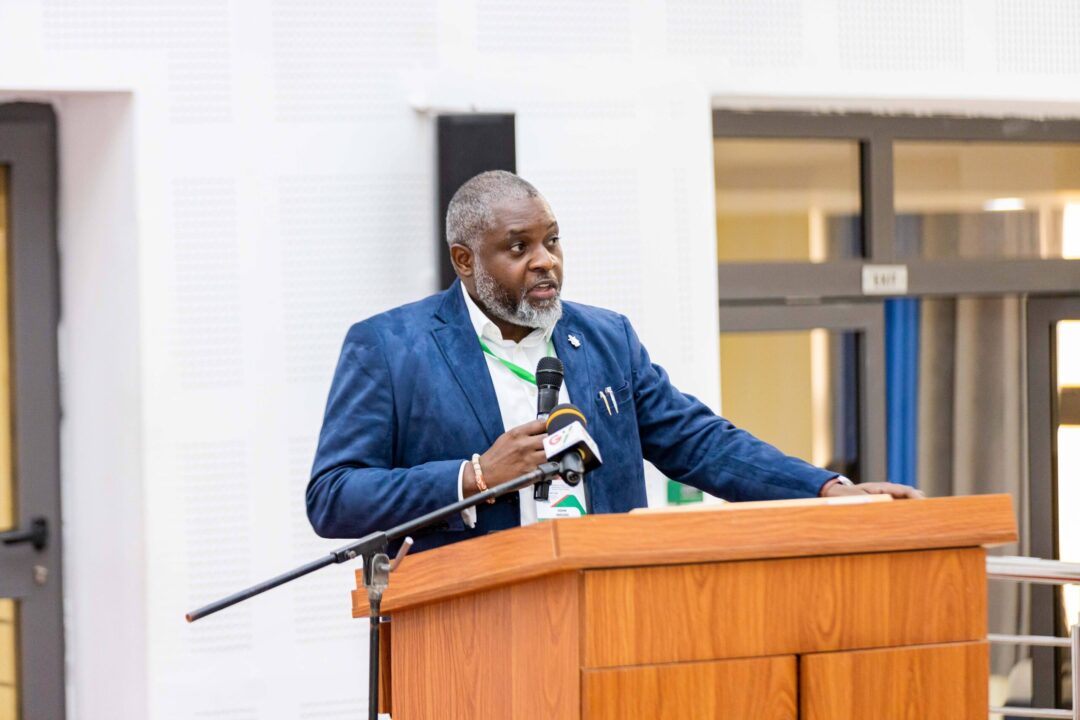
Innovative financing models were also a key topic of discussion. Professor Quentin provided a detailed analysis, noting that “Health financing in Ghana is political” and sits at the top of the national agenda. While acknowledging that Ghana’s system is good, he asserted it “can be improved.” He revealed that “public spending on health remains low in Africa” and that administrative costs in Ghana are particularly high. To achieve Universal Health Coverage, he suggested that Ghana’s health financing “should be guided by financing principles” and could explore models from other countries that “use revenues or taxes from other industries to finance health delivery and healthcare.”
The integration of technology into healthcare was presented as a transformative force, highlighting the successful transition of Komfo Anokye Teaching Hospital (KATH) from a paper-based system to digitally stored electronic health records, as a prime example. This technological leap “smoothened workflow through EHR,” demonstrating the potential for digital innovations to enhance efficiency and patient care across the nation.
Building on this foundation, the third day of the conference delved deeply into the non-negotiable importance of quality assurance in healthcare delivery. Ms. Jennifer Moodley, the Quality Manager for The Bank Hospital in Accra, powerfully stated that “excellent healthcare quality is not a department but a shared responsibility.” She argued that achieving the highest standards of care is a collective effort, not a task assigned to a single individual or team. This perspective reframes quality as an integral part of the organizational culture.
She asserted that it is a fundamental human right to receive safe healthcare everywhere, which is why patient safety must be actively encouraged and recognized. For this to happen, she explained, “leadership in all areas must actively engage in and promote the safety culture for the rest of the healthcare professionals to imitate.” This creates a ripple effect where safety becomes a core value, preventing incidents and strengthening the trust between patients and providers.
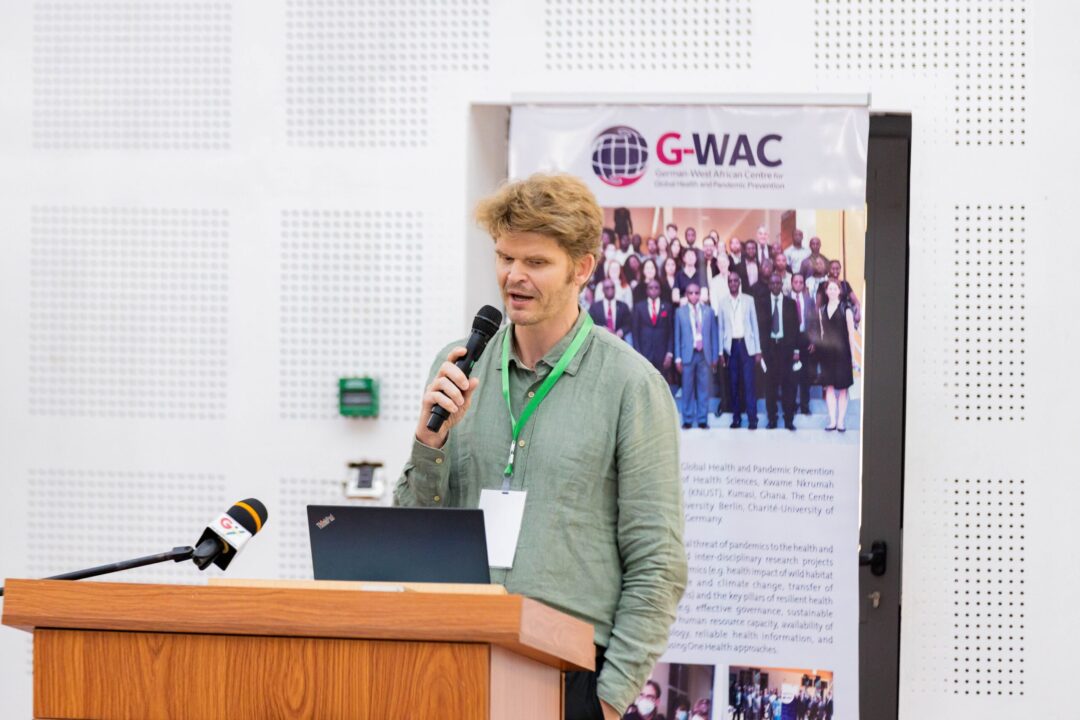
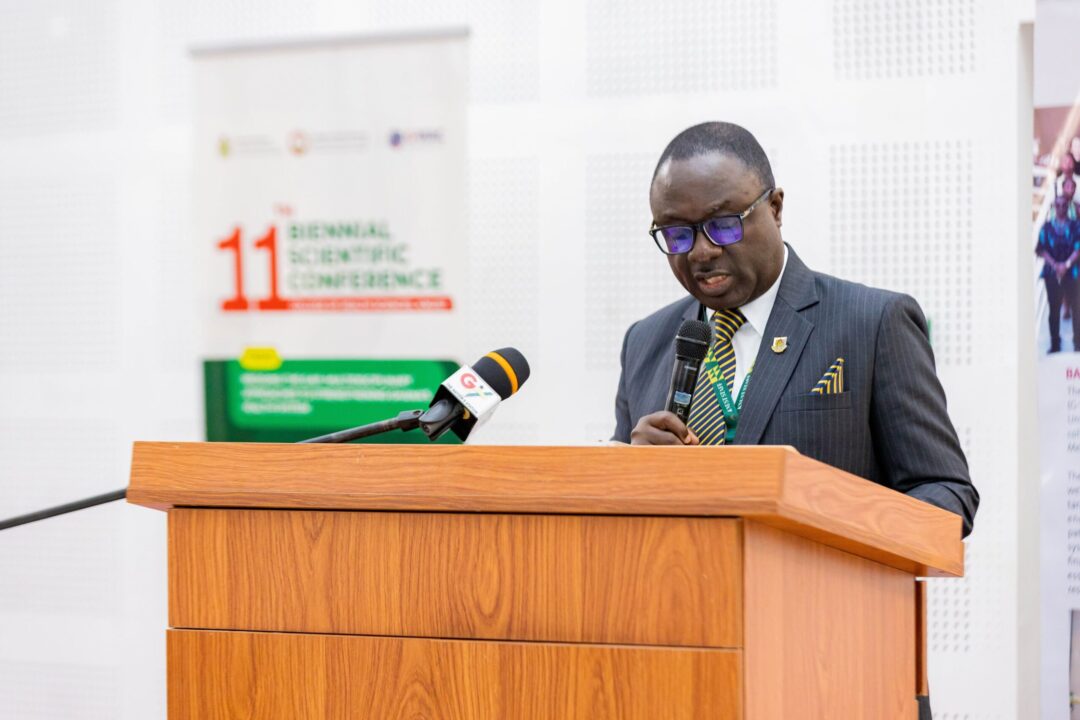
Ms. Bonifacia expanded on this topic, drawing lessons from the SafeCare initiative in Ghana. She offered a poignant reminder that “the essence of healthcare quality is not only in curing disease but in caring for the dignity and safety of the person.” She pointed out a critical reality: poor quality healthcare is a silent epidemic, claiming more lives annually in low-income countries than even the COVID-19 pandemic. According to Ms. Bonifacia, while Ghana is making strides, progress is hampered by a lack of sustained leadership commitment. She argued that “quality in healthcare is not a side quest but is foundational and thrives where leadership is committed.” The SafeCare model, which assesses facilities at all levels and guides staff through improvement processes, provides a tangible framework for embedding quality into the very fabric of healthcare operations.
Complementing the discussion on quality, Dr. Sodzi Sodzi-Tettey introduced another critical dimension for strengthening the health system: local capacity and self-sufficiency. He made a compelling case that “for African countries, we need to encourage self-production of vaccines and medicines.” Looking at the global health landscape, particularly in the wake of recent pandemics, he declared, “We’re in an era where Ghana needs to look at self-sufficiency and vaccine production.” This call for greater independence is not merely about national pride; it is a strategic imperative to ensure the health security of the nation and the continent, reducing reliance on external supply chains that can be unpredictable and inequitable.
Ultimately, the 11th Biennial Scientific Conference was a powerful confluence of ideas, creating a unified vision for the future. The message was clear: strengthening Ghana’s health system requires a holistic and determined approach. It demands the continued nurturing of international partnerships, a relentless pursuit of impactful research, an unwavering commitment to a culture of shared responsibility for quality and safety, and a bold strategy to build local capacity for producing essential medicines. The conference has laid the intellectual groundwork; the next step is the collective action to build that healthier, more secure future.
Source: Nana Kwaku Anyimadu Ofori

